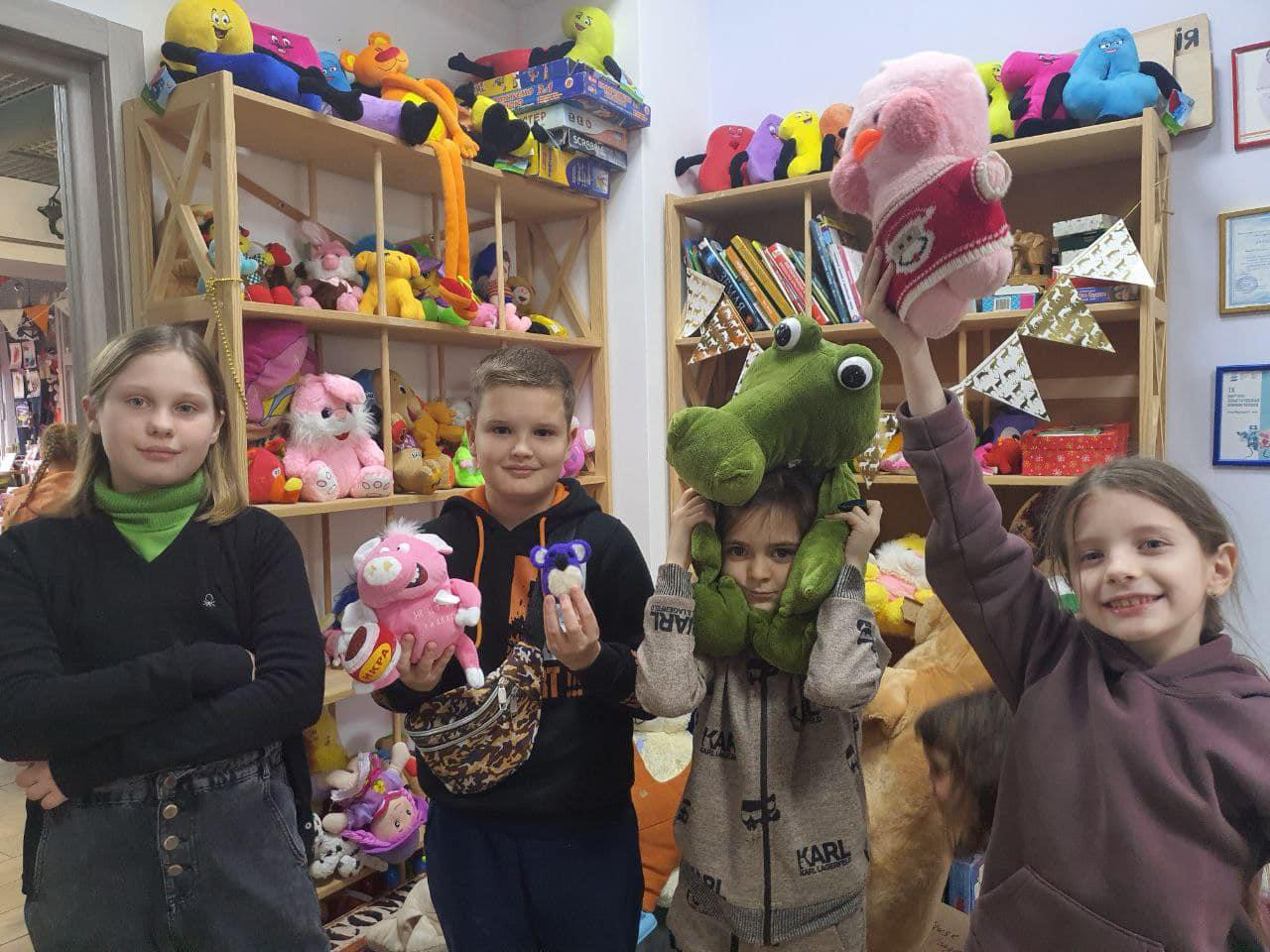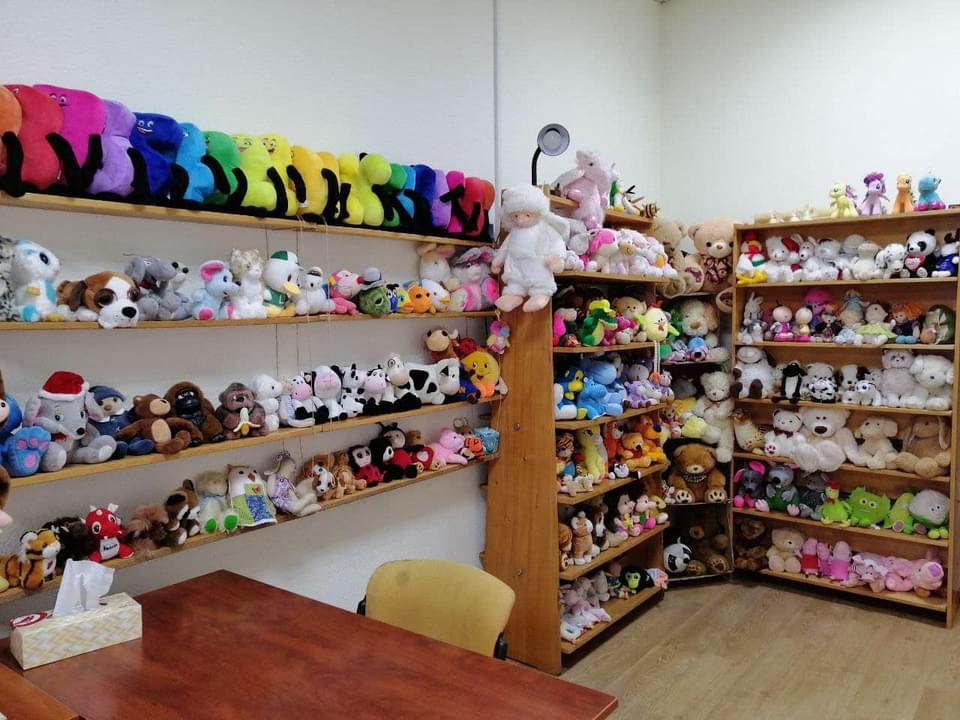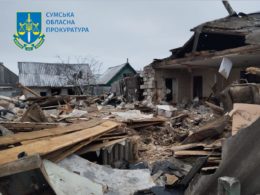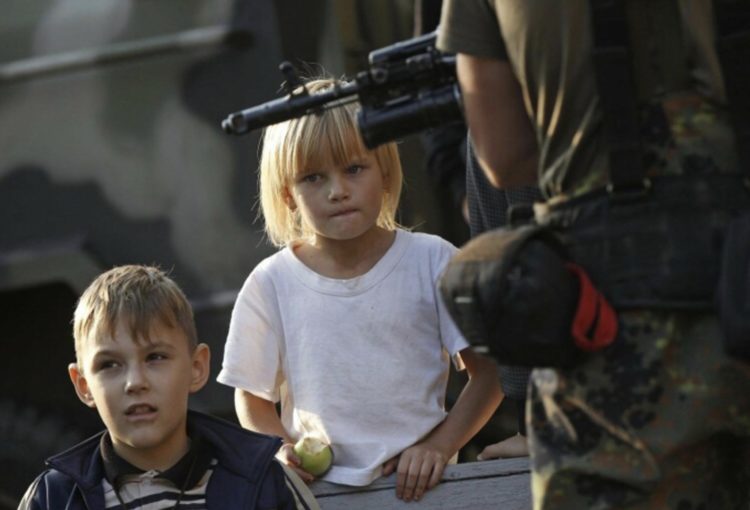A innovative Ukrainian project is using the power of toys to help thousands of children deal with the immense psychological stress and trauma caused by Russia's brutal war.
Ukrainian children have suffered psychologically and physically due to the war, experiencing trauma from being forced to sing the Russian anthem, write letters to occupying soldiers, and endure separation from their families and forced indoctrination. Many have been abducted and illegally deported, with efforts underway to return them to Ukraine.
The "Toy Therapy Room" initiative has opened 55 specially-designed therapy spaces across Ukraine over the past year, providing a safe haven for children to express their emotions and find comfort through playtime with stuffed animals and other plush toys, according to Ukrainian media outlet Rubryka.
"Our fight is not only on the battlefield because even now, it is so necessary to take care of a healthy, strong nation and make every effort to preserve the emotional health of every Ukrainian," explained Vita Moskalenko, a psychologist involved with the project.
In the warm, toy-filled rooms, trained therapists gently guide children through therapeutic play sessions aimed at relieving anxiety, anger, fear and other difficult feelings stemming from the war's violence and turmoil. Rather than directly probing their experiences, the psychologists let the children take the lead by choosing a toy that resonates with their current emotional state.
"The toy here is an assistant, with the help of which the child and the psychologist interact," Moskalenko said. "It makes this communication as soft as possible and natural for the child, removing unnecessary defenses and not injuring but, on the contrary, healing."
By allowing children to project their feelings onto the stuffed animals, metaphorically making the "tiger growl" or comforting a "sad cat," the psychologists can address underlying issues without retraumatizing them. The kids can also take the toys home as cherished companions providing a sense of security and support.
Since its launch in summer 2022, the Toy Therapy Room project has helped an estimated 30,000 children across Ukraine and even in neighboring countries where some have fled as refugees. Psychologists report seeing remarkable progress, with children who arrived anxious and withdrawn gradually opening up, playing freely, and recovering their childlike capacity for joy.
"We do it for smiles like these!" one therapist proclaimed, sharing a photo of beaming kids in a toy therapy space.

The project was born out of the charitable Nation's Gene Fund NGO in the first months after Russia's full-scale invasion sparked a mental health crisis for countless Ukrainian families. Adapting insights from art therapy, the psychologists developed the innovative toy-based approach to better connect with children impacted by traumatic events like deaths of loved ones, separation from friends, and exposure to violence.
"We could not stand aside, observing the extreme stress and chaos experienced by the Ukrainians. It was necessary to act quickly and efficiently," Moskalenko recounted.
Now, buoyed by an outpouring of donated stuffed toys and volunteer support, the Toy Therapy Room project is exploring ways to keep expanding its vital work, including hosting a conference in Kyiv, producing an educational film, and potentially opening locations abroad to help the Ukrainians abroad.
"This project changed more than one fate and became the basis of the mental well-being of many families during the war," Moskalenko said. "We will definitely use it even after the war's end and further on in individual practice."
As the war rages on with no clear end in sight, initiatives like toy therapy are offering a ray of hope - allowing Ukraine's most vulnerable young minds to begin healing from the war's deep psychological scars through the simple power of playtime.
Related:
- How to survive: psychologists at work with displaced children
- Russia using fake diagnoses to abduct Ukrainian children
- Ukraine uncovers children's torture chambers in its de-occupied territories
- A little girl had to learn to walk again due to the stress she experienced during the Russian bombing of Mariupol
- The horror of war seen through the eyes of Ukrainian children
- Helping children from eastern Ukraine deal with war
- Ukraine returns three children to their families
- How Ukrainian doctors saved seriously wounded children
- Children forced to wear Russian flags in occupied Ukrainian schools




